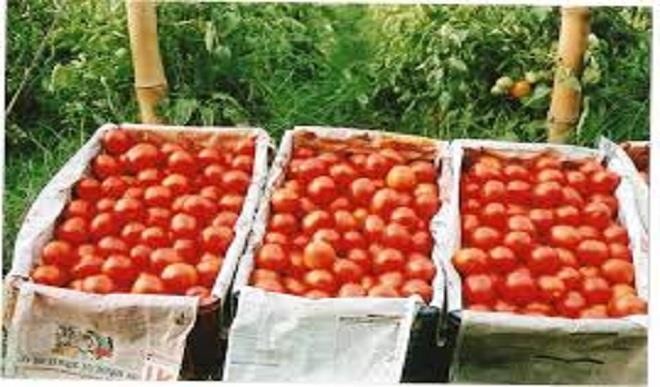Has FUTA Eva FI tomatoes disappeared from market?
About two years ago, the Federal University of Technology, Akure, Ondo State, came up with new variant of tomatoes named Eva F1 which was introduced into Nigeria courtesy of a collaborative effort between the School of Agriculture and Agricultural Technology (SAAT) and the Teaching and Research Farm (TRF) of the school. The Eva F1 tomato, […]

About two years ago, the Federal University of Technology, Akure, Ondo State, came up with new variant of tomatoes named Eva F1 which was introduced into Nigeria courtesy of a collaborative effort between the School of Agriculture and Agricultural Technology (SAAT) and the Teaching and Research Farm (TRF) of the school.
The Eva F1 tomato, Daily Trust on Sunday learnt at the time, was a variety that is five to seven times bigger in size than the commonly available ones in the Nigerian market and it is capable of producing paste more than four times the others.
The Dean, School of Agriculture and Agricultural Technology, Professor Taiwo Amos, and Farm Manager, Mr Olajide Adedayo, said the seedling was imported from Israel and carefully nurtured in FUTA’s Green House under controlled temperature.
Daily Trust on Sunday was at FUTA recently to see how the tomatoes had grown and its level of spread and acceptance in the market. The move followed reports that the Eva FI tomatoes was no longer in existence and had since become history.
But the head of protocol and media for the school, Mr Adegbenro Adebanjo debunked the claim, he said although the university objective was to carry out research and do community service and allow farmers to now produce it in large quantity for the market, the university, he said, is still producing but not on large scale.
He stressed that all they do is research before giving out the formula to end users.
Speaking further, Adegbenro said about fifty farmers in the state are already producing the tomatoes, “they came for training and we also went to their farms to demonstrate to them how to nurture it”.
He also said that they organize workshop for farmers in the state and it is an ongoing project.
Adegbenro also announced the development of another formula. This formula, he said, involves a new variety of bread with turmeric and ginger. “We just engaged a company in Ondo and the formula had been given to them, they know what to do with it,’’ he said.
For the tomatoes, he said they want people to propagate and develop on what they have done.
It would be recalled that Adegbenro had told our reporter that the story of the Eva FI tomatoes began with the immediate past dean of SAAT, Professor Shadrack Akindele, who saw the product on a working visit to Israel, linked up with Dizengoft Nigeria, and the organisation sold the idea to the university management.
The management bought the idea and gave approval for its cultivation and production through the green house modern farming technique.
The Eva F1 tomato, Adedayo said has the rare quality of imperishability over a period of two weeks from date of harvest.
Taking our correspondent round the green house at the time, Adedayo explained that the tomato was an indeterminate hybrid variety with an extended shelf life. According to him, it is a flier generation where two parents were crossed.
He said that the green house or screen house is made in such a situation where it can prevent all environmental factors. It is well netted and rain proof, adding that they water the plants according to their needs, because it has a range of water requirement. The green house, he said, can last for 10 years.
He described the development as the actualisation of part of the mandate and determination of the university to put science to work for the society.
According to him, the Teaching and Research Farm under the watch of the School of Agriculture and Agricultural Technology has gone into the farming and production of Tomato Eva F1 variety in the green house using modern farming technique.
He said high crop yield is achieved under a small area of land as a unit of the green house covers 192m2 (8m x 24m)”.
Stating the advantage of its potentials, Adedayo said “with this technology, the tomato crop will be grown and produce round the season. The Eva F1 tomatoes are organically produced and an indeterminate hybrid variety with an extended shelf life, good resistance to cracking with flower setting at high temperatures.”
For now, FUTA believe more farmers should come up to embrace this scientific discovery in agriculture as the school cannot produce in large quantity.
